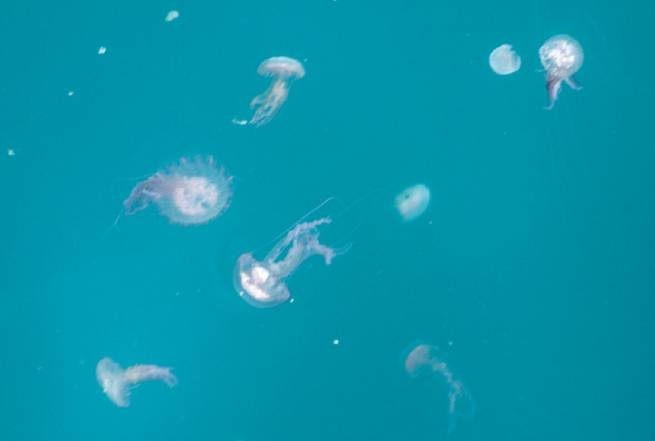The reason for the migration of blue jellyfish and the increase in their number, according to experts, is climate change, which contributes to an increase in temperature and the creation of comfortable conditions for their reproduction.
Christos Taqlis, marine biologist and administrator of the Hellenic Biodiversity Observatory, says:
“The blue jellyfish (Rhizostoma pulmo) in the Greek seas, like all other species, moves with the sea currents and approaches the coast.”
The blue jellyfish is a rather large individual, sometimes completely blue in color and rarely more than 60 cm. Its maximum weight is 10 kg. During this period they are found throughout Greece. A map with their detection in sea areas is located Here.
The expert says that climate change is not only increasing sea temperatures, but also maintaining high temperatures for longer than necessary, creating suitable conditions for jellyfish to breed:
“Each type of jellyfish needs different conditions to reproduce, such as the right water temperature. Of course, there are other reasons, such as salinity, nitrates and nitrogen. But even worse is the combination of climate change and overfishing, which creates an unexpected and unknown future for jellyfish. Because as jellyfish predators decrease and sea temperatures rise, we expect to see more frequent jellyfish outbreaks for a longer duration.”
The blue jellyfish has a peculiarity compared to most others – it releases mucus into the sea. Therefore, when a person swims in this mucus, he feels a strong itch. If someone accidentally or deliberately catches a blue jellyfish, he should not touch his face with his hands, as it will become inflamed, as if chili peppers were on the skin. In such a case, someone may need to visit the hospital.
Improper treatment of jellyfish exposure can worsen the condition and health. After meeting with some species, such as, for example, the purple jellyfish, it is forbidden to use fresh water to alleviate the condition, with other species, vinegar is required. Sometimes you need hot water, and sometimes cold. Using ammonia does not help most jellyfish stings, the scientist warns.
There is a specific guide (in English) on what is recommended and what not to do with each jellyfish sting, writes CNN Greece, you can find him at the following link. In the meantime, meet the most dangerous jellyfish in the world:







More Stories
Black swan in the Evros river delta
The weather will turn bad on Good Friday
Crete "shaking" – two earthquakes this morning